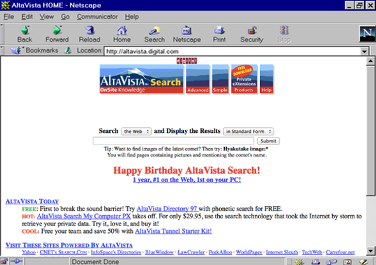
In 1998 or so I was working for a radio station that was owned by an advertising agency. They were actually two separate businesses owned by the same husband and wife (who could fight like no couple I’ve ever met in my life) but I ended up working on both sides of that fence and it was interesting. I’ve never had an interest in advertising. I find advertising annoying. But for a small chunk of my adult life I made a living by, among many other things in the jack-of-all-trades position that involved maintaining computer networks, being on the Top 40 radio station, and working on FM transmitters, writing ad copy for a smattering of businesses across Upstate New York. Hell, I voiced more than one commercial that played on all the radio stations in the five boroughs of New York City.
As a solidly Gen X individual I know life both in the analog world and the digital world. I can easily remember before everything was computerized. I know the joy of receiving cards in the mail, I revel in the memories of dialing into to retrieve email long before the days of America Online, and I can remember what the very early stages of the World Wide Web was like. I was “raised” in a certain tech culture; before my days at the radio station/advertising agency I worked for the second largest computer company in the world. All 120K employees of Digital Equipment Corporation had a terminal on their desk at the time, and in glorious (you pick green/white/amber) text we could email, “surf” our internal pre-web text pages, and chat with one another through forums called VAXnotes and chat programs called VAXchat.
At no time did the “monetization” of the Internet cross my mind. Like many others, I thought of “the web” as a wonderfully mammoth collaborative living encyclopedia, where we would exchange ideas, talk with one another, and make each other think, communicate, and debate on various topics.
At no time did I throw advertising into that equation.
Back to the advertising agency. One of the clients of the agency was the NYS Department of Transportation, and they were looking to improve their image by running commercials about the wonders of roundabouts, the importance of expressways in our small city, and the safety of following stop signs and speed limits. Somehow the subject of my very first web site, a cacophony of information about the roads of Upstate New York, came to the forefront and I ended up showing my website to the owners of the business.
“You should charge people for this information. At the very least, you should show ads and collect some money”.
This had never crossed my mind. What eventually became UpstateNYroads.com was never a source of revenue for me; my focus on the site was to contribute to that big, living encyclopedia I envisioned and I was doing my part to contribute to the greater good. There was no money involved.
Can you imagine an Internet experience today where money is not involved? It’s so incredibly sad.
The monetization of the Internet has destroyed the original purpose of the vehicle. We now have “influencers” that try to make a legitimate living by sharing the beauty of products and places, all the while being paid for it.
Gross.
I’ve never had ads on any of my sites. I’ve never charged for content. I’ve never tried to monetize the videos I’ve shared and I throw out any resume that mentions an applicant has tried to live their life as an influencer.
I still believe the Internet can make us better, but only if approached the right way. Unfortunately, with the lies, and the deception, and the anger, and the rabidness, and the screaming, and the yelling, and the charging, and the flashy ads, and the data mining, I don’t think the Internet is going to make us better. I want to believe we’ll come around, but we’ll probably destroy ourselves before that happens.
I’m so happy I stepped away from a life of writing and voicing ads.
